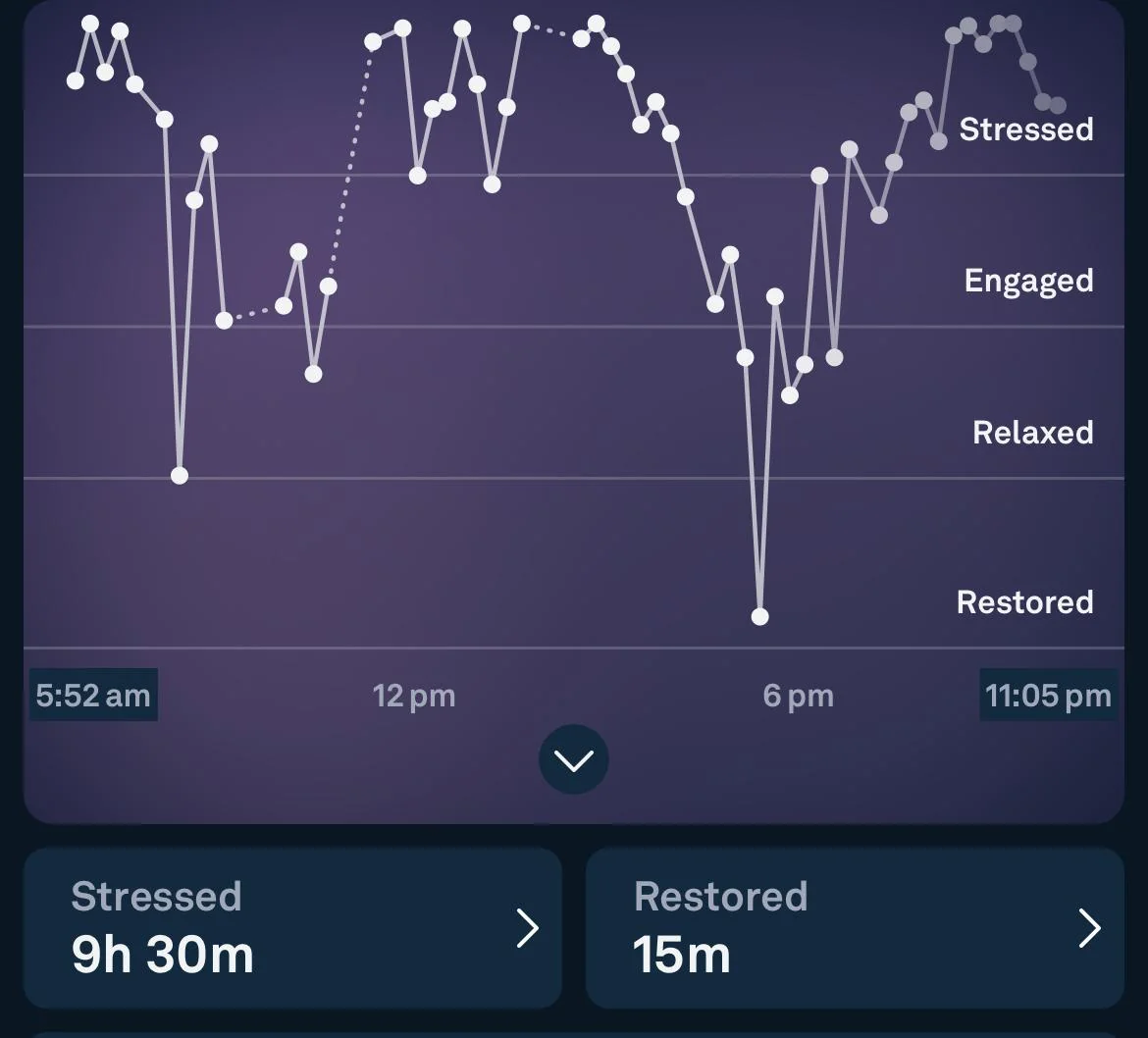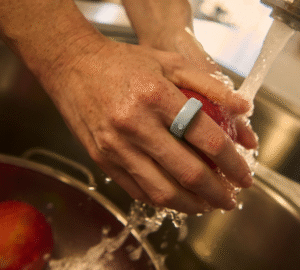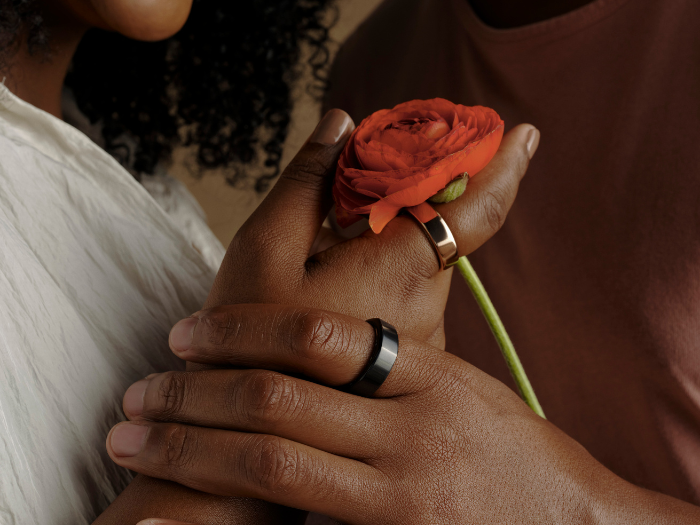Butterflies in your stomach, a racing heart, sweaty palms — you’ve probably felt the physiological effects of love (or lust). As it turns out, these feelings don’t just show up in your body, but also in your Oura data.
At Oura, we’re in constant pursuit of empowering our members to learn how their bodies react to different behaviors, environments, and actions. One of our latest features, Daytime Stress, tracks physiological stress during waking hours so that you can understand, manage, and recover from it more effectively.
One aim of the feature is to show that not all stress is bad. As Sofia Strömmer, PhD, Behavioral Scientist at Oura, notes, “This feature symbolizes a revolution in how we think about stress and how we pay attention to what our bodies experience day to day. A big part of health is understanding the signals our bodies are giving us, and learning from them.”
In other words, you might see your stress levels rise from activities you consider enjoyable — such as having dinner with friends, watching sports, sauna sessions, and yes, even going on a date.
RELATED: Which Day of the Week Are Oura Members Most Stressed?
“Is My Date Stressing Me Out?”
A few months after Daytime Stress launched, a post on Reddit caught the eye of Tiia Suomalainen, Senior Product Designer, who designed the feature.

In the post, an Oura member shares that they recently started dating another Oura member. After spending the day together, their date asked to see their Daytime Stress graph, which showed 9 hours and 30 minutes of stress.
“She was a bit concerned that she caused me stress,” they shared. For added context, the original poster (OP) shared that their typical workday added up to about three hours of stress. They also shared details about the day in question, in which they went for two outdoor walks, got lunch, and ordered delivery for dinner.
Luckily, the OP’s date needn’t be concerned. “It’s very normal to have a physiological stress reaction on a date,” Strömmer explains. “This is a typical response when you’re in love or simply excited to be with a significant other!” A few reasons why:
- “Any type of socializing can show up as physiological stress in your Oura data, because it requires us to be alert and focused, which takes energy. Our bodies are engaged in any social situation, and more so when we are on a date,” Strömmer says.
- The outdoor walks could have led to an increase in physiological stress levels. Although Oura doesn’t track stress during physical activity, movement such as walking will lead to a higher heart rate after the activity.
- Finally, if alcohol was involved on the date, that’s another reason to see stress levels spike! Alcohol is a known stressor on the body, resulting in a higher heart rate and lower HRV, which Oura will interpret as stress.
The lesson? Don’t worry if you’re seeing stress levels rise on Valentine’s Day (or any other romantic occasion). It’s not only normal, but in fact, a good thing that shows you’re excited about your date!
The Downside of Dating
We’d be remiss not to note that in today’s world, dating in general can be stressful — and not in a good way.
A 2020 Pew Research study found 67% of daters say that their dating lives are going “not too well” or “not at all well,” while a whopping 75% say it’s “very” or “somewhat difficult” to date in the past year. Plus, nearly half (47%) of Americans say they think dating has gotten more difficult in the past decade.
With the proliferation of dating apps (and choices), the decrease of attention spans, and the mere challenge of finding time to date in our busy lives, it’s not hard to understand how dating has become so difficult.
How to Lower Your Stress Around Dating
Strömmer shares some advice to make dating easier on your body (and mind): “Build dates around things you enjoy, like one of your favorite hobbies,” she suggests. “Grabbing a coffee and taking a walk can feel less confrontational than sitting across from each other at a dinner table.”
This can also make it more clear whether you two are compatible, and share similar interests, which can predict dating success, she notes. “Whatever you decide to do, strategize to ensure enough recovery time for yourself after the date to balance out any physiological stress that it created.”
Some research-backed ways to manage stress include:
- Try a guided meditation from Oura’s Explore content.
- Go for a stroll outdoors.
- Sweat it out in a sauna session.
- Pick up a new hobby.
LEARN MORE: Resilience: Improve Your Ability to Recover From Stress
About the Oura Expert
Sofia Strömmer, PhD, is a behavioral scientist at Oura. She is a Chartered Psychologist and has a PhD in Psychology focusing on the motivational aspects of health behavior change and how motivation for health behaviors arises and is maintained. Before joining Oura, Sofia worked as a researcher at the Medical Research Council at the University of Southampton.











